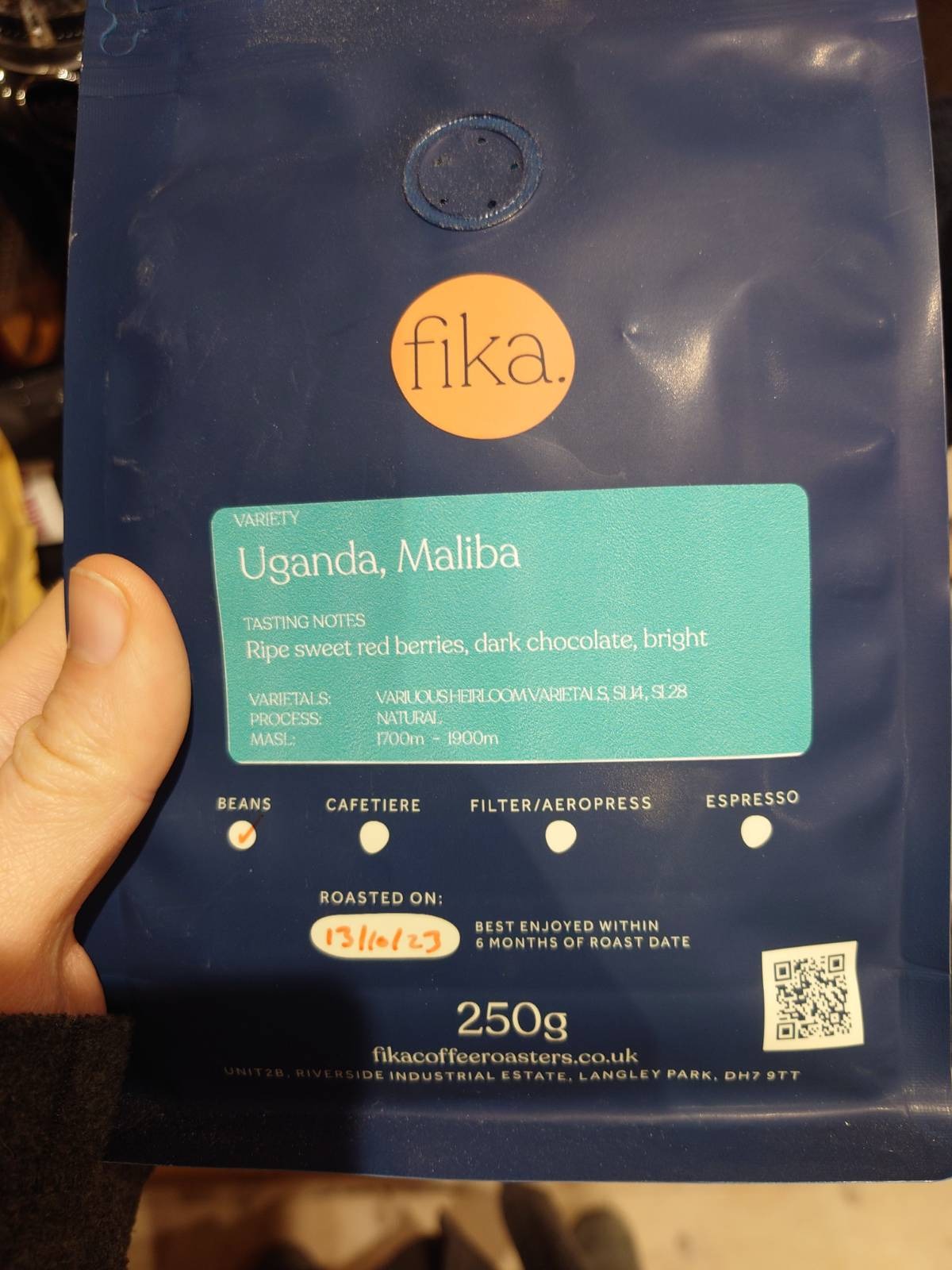The PK coffee of the year 2023!
12 Jan 2024 • ~600 words • ~3 minute read
I don't have exact stats on how many coffees I tried in 2023 (though am writing a wee API for this very purpose, more on that some other time), but one coffee in particular really stood out: the Uganda, Maliba from Fika.

I picked this up from my regular local specialty coffee cafe Rustic Cup, who had this in as a guest bean. I hadn't heard of Fika before, so love that Rustic Cup are now doing guest coffees from local roasters as it's a great way to discover more amazing local specialty coffee here in the Newcastle area!
Why this coffee?
Taste/flavour
Quite simply, this bean was brimming with complexity. It had great acidity, lightness, but also depth from those darker flavours. It was full-bodied, rounded and sweet. It had a wonderful, velvety texture. It was simply delicious and has haunted me since.
Consistency
I had only had my new espresso machine for a short while by this point, so was still relatively new to dialling in. Despite a few terrible shots, this coffee always gave me something to enjoy, even when too sour or over extracted.
I think it's got to be acknowledged that most coffees don't do this!
Big impact
It left quite a big mark on me! I've tried getting it multiple times since, but Fika haven't listed it. Presumably it's a seasonal bean, so I will have to keep my eyes open.
My recipe
I think my dialling in process has gotten better since having this in, but the recipe I settled on was:
| dose: | 18g |
| yield: | 44g |
| time: | 33s |
This was using my Niche Zero and Lelit Mara X.
I had hints of raspberry and cherry, giving it a great acidity balance of sweetness and tartness without being too heavily one or the other. The dark chocolate was the main finish, leaving a very pleasent chocolate raspberry sort of aftertaste on the palette.
Producer information is key
I like Fika's packaging as it includes lots of the key things I like to know when buying coffee. One thing I would have liked that it's missing is something indicating what producer(s) they sourced these beans from - and that does bother me.
I like this information as it usually indicates a good relationship between roaster and producer, or at least one that doesn't shaft the producer entirely.
Business relationship aside, they should be acknowledged for their major role in the wonderful coffee in the cup.
Some interesting things I learned
Exceptional coffee from Uganda is still relatively rare, but the best cups are sweet, full of dark fruits and have a clean finish.1
I was surprised to read when looking up this region in James Hoffmann's World Atlas of Coffee that Uganda is
- one of the few places in the world with indigenous coffee
- one of the largest exporters of coffee in the world
- not particularly big on the specialty coffee map, due to the predominant growth of robusta for commodity coffee
That last point is quite surprising, especially when one considers the booming specialty coffee industry emerging in neighbouring countries like Kenya and Rwanda.
Learning these facts about Uganda certainly made me appreciate this coffee even more, as it indicates that the producer is sort of working 'against the grain', so to speak!
I've no idea whether this would be 'exceptional' to JH, but to me it was this in spades.
References
Hoffmann. The World Atlas of Coffee, 156